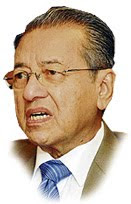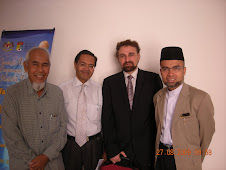About OIC
The Organization of the Islamic Conference (OIC) is the second largest inter-governmental organization after the United Nations which has membership of 57 states spread over four continents. The Organization is the collective voice of the Muslim world and ensuring to safeguard and project the interests of the Muslim world in the spirit of promoting international peace and harmony among various people of the world. The Organization was established upon a decision of the historical summit which took place in Rabat, Kingdom of Morocco on 12th Rajab 1398 Hijra (25 September 1969) as a result of criminal arson of Al-Aqsa Mosque in occupied Jerusalem.
In 1970 the first ever meeting of Islamic Conference of Foreign Minister (ICFM) was held in Jeddah which decided to establish a permanent secretariat in Jeddah headed by the organization’s secretary general. Prof Ekmeleddin Ihsanoglu is the 9th Secretary General who assumed the office in January 2005 after being elected by the 31st ICFM.
The Charter of the Organization was adopted by the Third ICFM in 1972 which laid down the objectives and principles of the organization and fundamental purposes to strengthen the solidarity and cooperation among the member states. Over the last 38 years, the membership has grown from its founding members of 30 to 57 states. The Organization has the singular honor to galvanize the Ummah into a unified body and have actively represented the Muslims by espousing all causes close to the hearts of over 1.5 billion Muslims of the world. The Organization has consultative and cooperative relations with the UN and other inter-governmental organizations to protect the vital interests of the Muslims and to work for the settlement of conflicts and disputes involving member states. In safeguarding the true values of Islam and the Muslims, the organization has taken various steps to remove misperceptions and have strongly advocated elimination of discrimination against the Muslims in all forms and manifestations.
The Members States of the OIC faces many challenges in the 21st century and to address those challenges, the third extraordinary session of the Islamic Summit held in Makkah in December 2005, laid down the blue print called the Ten-Year Program of Action which envisages joint action of member states, promotion of tolerance and moderation, modernization, extensive reforms in all spheres of activities including science and technology, education, trade enhancement, and emphasizes good governance and promotion of human rights in the Muslim world, especially with regard to rights of children, women and elderly and the family values enshrined by Islam.
Under the Charter, the Organization aims to:
1. Strengthen:
Islamic solidarity among Member States;
Cooperation in the political, economic, social, cultural and scientific fields:
The struggle of all Muslim people to safeguard their dignity, independence and national rights.
2. Coordinate action to:
Safeguard the Holy Places;
Support the struggle of the Palestinian people and assist them in recovering their rights and liberating their occupied territories.
3. Work to:
Eliminate racial discrimination and all forms of colonialism;
Create a favorable atmosphere for the promotion of cooperation and understanding between Member States and other countries.
The Charter also enumerates the principles governing OIC activities, namely:
Full equality among Member States
Observation of the right to self determination and non-interference in the internal affairs of Member States
Observation of the sovereignty, independence and territorial integrity of each State
The settlement of any dispute that might arise among Member States by peaceful means such as negotiations, mediation, conciliation and arbitration
A pledge to refrain, in relations among Member States, from resorting to force or threatening to resort to the use of force against the unity and territorial integrity or the political independence of any one of them In order to achieve its objectives, the Organization has main bodies, secondary organs, institutions and specialized committees.
The Islamic Conference is composed of the following main bodies:
The Conference of Kings and Heads of State and Government, also known as the Islamic Summit Conference, is the supreme authority of the Organization which meets once every three years to lay down the Organization’s policy and elects Chairman of the Organization who holds office until next session.
The Conference of Foreign Ministers, which meets once a year to examine a progress report on the implementation of its decisions taken within the framework of the policy defined by the Islamic Summit
The General Secretariat, which is the executive organ of the Organization, entrusted with the implementation of the decisions of the two preceding bodies
So far eleven Islamic Summit Conferences and thirty-four Islamic Conferences of Foreign Ministers (ICFM) have been held. The Eleventh Islamic Summit Conference held in the Dakar on 13-14 March 2008 elected Senegal as the current Chairman of the Organization. The Secretary General of the Organization of the Islamic Conference, Professor Ekmeleddin Ihsanoglu, was re-elected for a new term of office at the closing meeting of the 11th Session of the Islamic Summit Conference. The new OIC Charter was adopted at the Dakar Summit. The Summit also witnessed the setting up of a Special Programme for the Development of Africa (SPDA). An agreement between H.E. President Omar Hassan Al Bashir and H.E. President Idriss Deby, President of the Republic of Chad, under the auspices of H.E. Maitre Abdoulaye Wade, President of the Republic of Senegal, was signed on the sidelines of the 11th Islamic Summit Conference, on 13 March 2008. Before the Summit Conference, at His Excellency President Abdoulaye Wade’s initiative, the first conference of humanitarian and charity organizations was held in Saly Portudal from 7 to 9 March 2008.
In order to coordinate and boost its action, align its view points and stands, and be credited with concrete results in the various fields of cooperation: political, economic, cultural, social, spiritual and scientific, among Member States, the Organization has created different committees, nearly all, at ministerial level, a number of which are chaired by Heads of State. The Al-Quds Committee, the Standing Committee for Information and Cultural Affairs (COMIAC), the Standing Committee for Economic and Trade Cooperation (COMCEC), and the Standing Committee for Scientific and Technical Cooperation (COMSTECH) are the ones Chaired by Heads of State.
The number and types of secondary organs and institutions, working toward the achievement of the OIC objectives, have been steadily increasing, and cover various areas of cultural, scientific, economic, legal, financial, sports, technological, educational, media, as well as vocational, social and humanitarian. Depending on their degree of autonomy vis-à-vis the parent organization, they are classified as subsidiary organs and specialized or affiliated institutions.
Friday, July 11, 2008
Subscribe to:
Post Comments (Atom)







































No comments:
Post a Comment